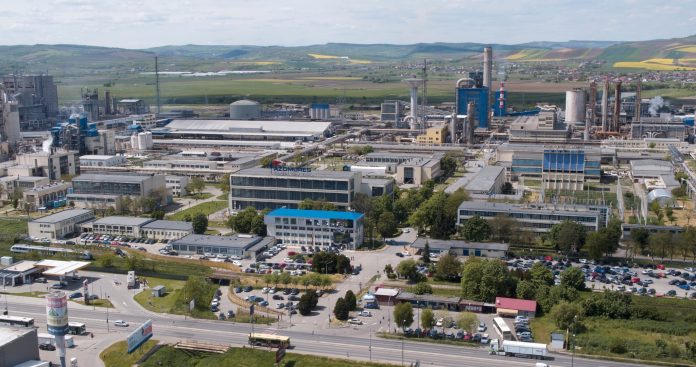At the event organised at the Targu Mures National Theatre in celebration of the 60th anniversary of the start of the construction of the Azomures Chemical Fertilizer Plant, former company CEO Harri Kiiski said that it is „ironic” that 60 years on, Europe should think about de-industrialization because of the energy crisis, according to Agerpres.
„In the 60s, Romania was getting industrialized, industrial development was present in just a few cities – Galati, Petrobrazi or Azomures. It’s ironic that 60 years on, we or Europe should consider de-industrialization because of the energy crisis. In the 60s, Azomures set off with 15 million tons of ammonia production, today Europe halted 11 million tons. In the 60s, Romania was transitioning from coal to gas at a time when 50 percent of the ammonia production was obtained from coal, and Romania was already taking the first steps to produce ammonia from gas. Romania practically created value by using that gas, and today it has the second largest gas reserve in Europe. Even in that period, green ammonia was being produced in an electricity-powered process, we’re kind of going back to Europe’s situation in 1962 as we do these things,” said Harri Kiiski.
He also mentioned that the ‘Liviu Rebreanu’ Company of the National Theater in Targu Mures was founded in 1962, and that it has grown together with the Azomures plant.
William Dujardin, CEO of Azomures owner Ameropa, stated that Romania is today a global agribusiness leader also due to Azomures, and Ameropa is the agribusiness leader in Romania. Dujardin emphasized that Romania is very important for Ameropa, since this is where the group has the most assets and the most employees.
As both Azomures and the ‘Liviu Rebreanu’ Company of the National Theater in Targu Mures mark this year six decades of existence, the anniversary event highlighted the symbiosis between the industrial platform and the community through a unique theater performance consisting of fragments from the shows staged immediately after the company’s foundation, such as Mihail Sebastian’s „Jocul de a vacanta/The Holiday Game” directed by Nicolae Cristache, „Take, Ianke si Cadar/Take, Ianke and Cadar” by Victor Ioan Popa, directed by Nicu Mihoc, and Moličre’s „School for Wives”.
Agerpres




